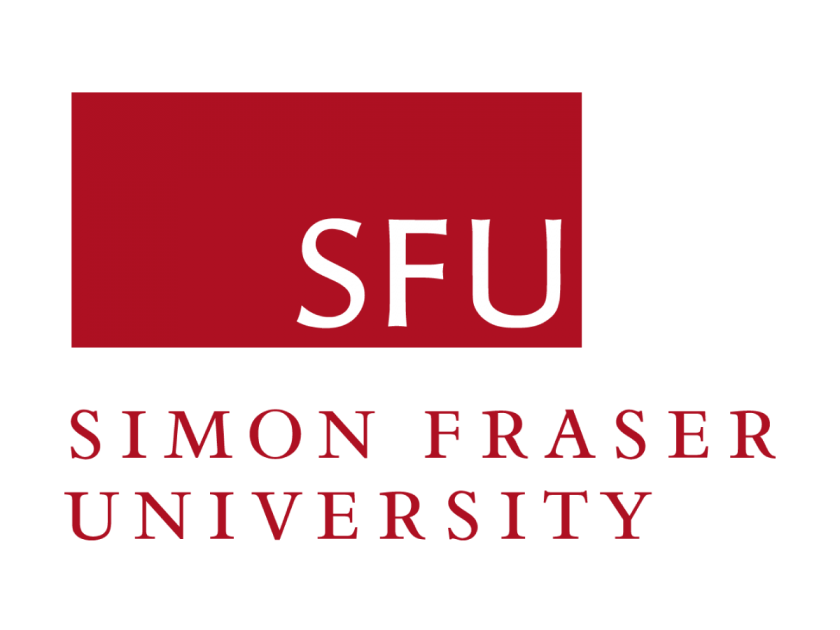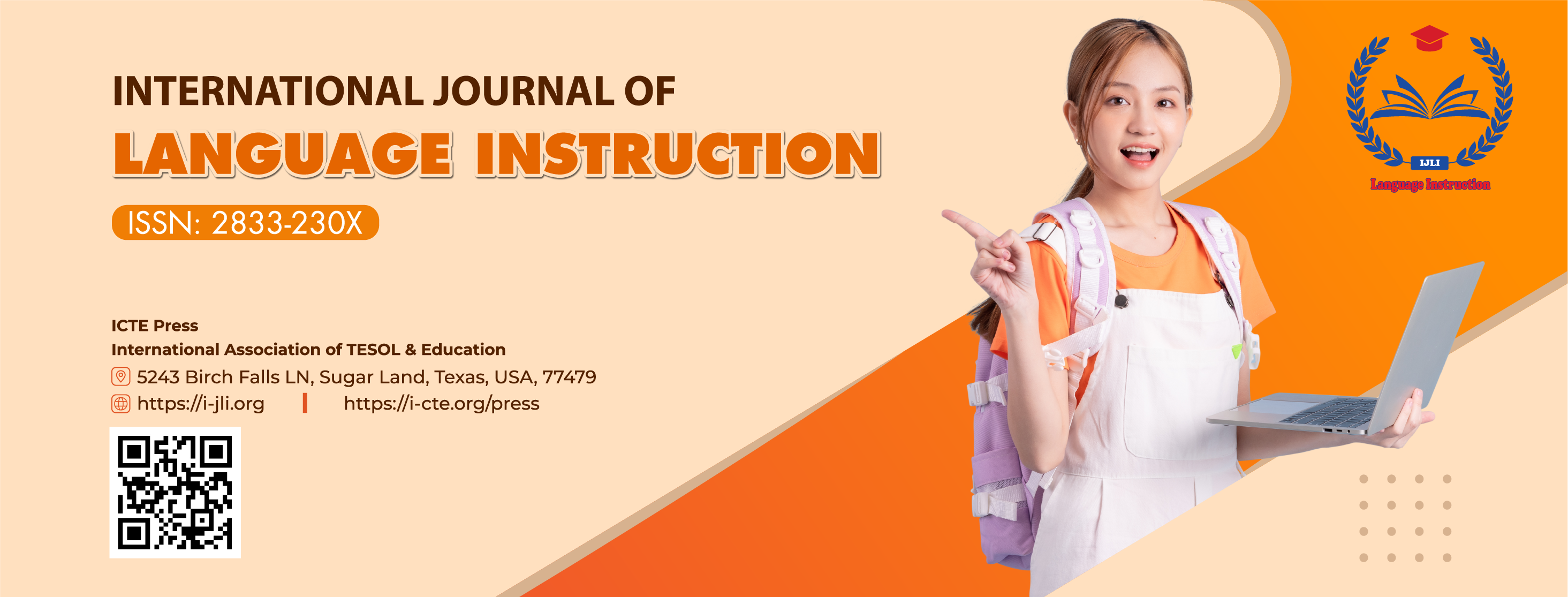Teachers’ Perceptions on Questioning Strategies at Pre-Speaking Stage in EFL Classroom Interaction – A Case of a University of Mekong Delta
DOI:
https://doi.org/10.54855/ijli.22116Keywords:
questioning strategies, teachers’ perceptions, classroom interaction, pre-speaking stageAbstract
In the context of speaking English as a means of international communication, improving English skills for students, especially non-English majors, is a mandatory requirement for teachers. Among the methods of improving language skills, the questioning strategy is applied by most teachers. Therefore, the study is to determine teachers' questioning strategies and perceptions of questioning strategies in the pre-speaking stage. This qualitative research is carried out by semi-structured interviews of five teachers who teach General English in a university in Mekong Delta where English is obligatory for non-English major students. The data collected were analyzed which teacher's questioning strategies were used and teachers' perceptions of teachers' questioning strategies in EFL classroom interaction. The research's findings showed that convergent questioning and divergent questioning strategies are more common than procedural questioning strategies. Besides, teachers consider questioning strategies useful to pique curiosity and attention, students' interest, understanding of the lesson, classroom interaction, and critical thinking. The findings are also an additional resource for teaching English as a foreign language.
References
Al-Zahrani, M. Y., & Al-Bargi, A. (2017). The impact of teacher questioning on creating interaction in EFL: A discourse analysis. English Language Teaching, 10(6), 135-150. https://doi.org/10.5539/elt.v10n6p135
Apriani, R., & Marchelina, D. (2018). An analysis of teacher questioning in the classroom interaction. PROJECT (Professional Journal of English Education), 1(4), 400-404. https://doi.org/10.22460/project.v1i4.p400-405
Astrid, A., Amrina, R. D., Desvitasari, D., Fitriani, U., & Shahab, A. (2019). The power of questioning: Teacher’s questioning strategies in the EFL classrooms. Indonesian Research Journal in Education |IRJE|, 91–106. https://doi.org/10.22437/irje.v3i1.6601
Bui, N. K., & Nguyen, H. B. (2021). Students’ perceptions of the effects of questioning at pre-reading stage on reading comprehension: A case at a Vietnamese University. Multicultural Education, 7(12), 377–385. https://doi.org/10.5281/ZENODO.5792113
Boyatzis, R. E. (1998). Transforming qualitative information: Thematic analysis and code development. SAGE Publications.
Fatmawati, E., Rahman, A. Q., & Mahmud, M. (2020). Teacher’s questioning strategies in EFL classroom interaction. Jurnal Pendidikan Bahasa Inggris, 9(1), 59–72.
Heritage, M., & Heritage, J. (2013). Teacher questioning: The epicenter of instruction and assessment. Applied Measurement in Education, 26(3), 176–190.
Hong, T. D., & Nguyen, H. B. (2019). Teacher beliefs and practices of scaffolding students’ reading comprehension through questioning at pre-reading stage. European Journal of Foreign Language Teaching, 4(2), 72–92. https://doi.org/10.5281/zenodo.3270743
Izzati, T. G., & Wahyuni, D. S. (2021). Teacher’s questioning in classroom interaction towards students’ learning process in an EFL classroom. English Education, 9(3), 165–175.
Kholisoh, M. N., & Bharati, D. A. L. (2021). Teachers’ questioning strategies and students’ perceptions toward critical questions in EFL classroom interaction. ELT Forum: Journal of English Language Teaching, 10(2), 136–145. https://doi.org/10.15294/elt.v10i2.43302
Nashruddin, N., & Ningtyas, P. R. (2020). English as Foreign Language (EFL) teacher’s questioning strategies in classroom interaction. Journal of Ultimate Research and Trends in Education, 2(1), 5–11. https://doi.org/10.31849/utamax.v2i1.3720
Nguyen, T. B. T., & Nguyen, B. H. (2018). The effects of question-answer relationship strategy on EFL high school students reading comprehension. European Journal of English Language Teaching, 3(4), 34–48.
Nguyen, T.D.T., & Pham, V. P. H.(2022). Effects of using technology to support students in developing speaking skills. International Journal of LanguageInstruction, 1(1),1-8.
Nguyen, T. L. P. (2022). Teachers’ strategies in teaching reading comprehension. International Journal of TESOL & Education, 1(1), 19-28.
Pham, L. N. K., & Hamid, M. O. (2013). Beginning EFL teachers’ beliefs about quality questions and their questioning practices. Teacher Development, 17(2), 246–264.
Phan, N. P. T., & Nguyen, B. H., (2021). Teachers’ perceptions of questioning as pre-teaching stage in General English classes. European Journal of English Language Teaching 6(5), 1–95. https://doi.org/10.46827/ejel.v6i5.3873.
Shen, P., & Yodkhumlue, B. (2012). A case study of teacher’s questioning and students’ critical thinking in College EFL reading classroom. International Journal of English Linguistics, 2(1), p199-206. https://doi.org/10.5539/ijel.v2n1p199
Sunggingwati, D., & Nguyen, H. T. M. (2013). Teachers’ questioning in reading lessons: A case study in Indonesia. Electronic Journal of Foreign Language Teaching, 10(1), 80-95.
Tran, T. T. T., & Phuong, H. Y. (2018). The impact of questioning and semantic map in pre-reading stage on students reading comprehension: a comparative study. European Journal of Education Studies, 4(6), 279-293. https://doi.org/10.5281/zenodo.1245772
Tran, T. H. T. (2022). Employing CLT Approach to Improve English Speaking Skill for Hau Giang Community College Students. International Journal of Language Instruction, 1(1), 29–40.
Tofade, T., Elsner, J., & Haines, S. T. (2013). Best practice strategies for effective use of questions as a teaching tool. American Journal of Pharmaceutical Education, 77(7).1-9. https://doi.org/10.5688/ajpe777155
Vebriyanto, D. A. (2015). Teacher’s questions in EFL classroom interaction. Vision: Journal for Language and Foreign Language Learning, 4(2), 279–303. https://doi.org/10.21580/vjv4i21595
Wahyudi, D. (2017). The use of questioning technique to enhance students’ speaking ability.” Indonesian Journal of Integrated English Language Teaching 3(1):93–117. https://doi.org/10.24014/ijielt.v3i1.3971.
Yuliawati, Y., Mahmud, M., & Muliati, M. (2016). Teacher's questioning and students critical thinking in EFL classroom interaction. ELT Worldwide: Journal of English Language Teaching, 3(2), 231–247. https://doi.org/10.26858/eltww.v3i2.2261
Downloads
Published
Issue
Section
License
Copyright (c) 2022 Huynh Nhu

This work is licensed under a Creative Commons Attribution-NonCommercial 4.0 International License.
The copyright of all articles published in the International Journal of Language Instruction (ijli) remains with the Authors, i.e. Authors retain full ownership of their article. Permitted third-party reuse of the open access articles is defined by the applicable Creative Commons (CC) end-user license which is accepted by the Authors upon submission of their paper. All articles in the ijli are published under the CC BY-NC 4.0 license, meaning that end users can freely share an article (i.e. copy and redistribute the material in any medium or format) and adapt it (i.e. remix, transform and build upon the material) on the condition that proper attribution is given (i.e. appropriate credit, a link to the applicable license and an indication if any changes were made; all in such a way that does not suggest that the licensor endorses the user or the use) and the material is only used for non-commercial purposes.
Authors are able to enter into separate, additional contractual arrangements for the non-exclusive distribution of the journal's published version of the work (e.g., post it to an institutional repository, in a journal or publish it in a book), with an acknowledgment of its initial publication in this journal.











